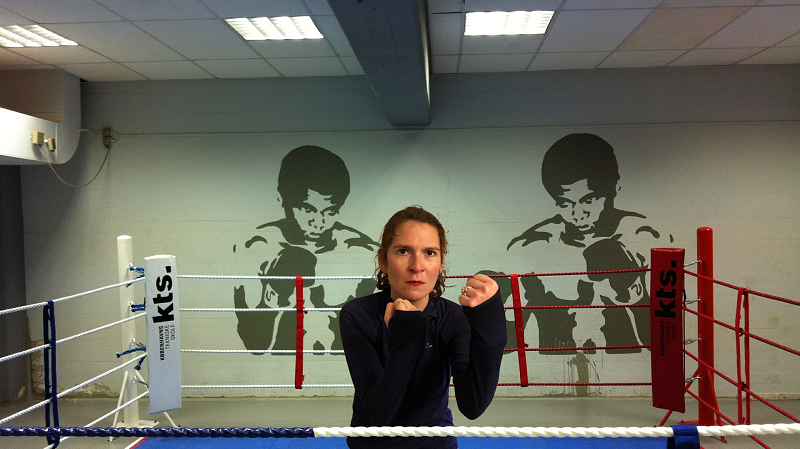I am a fighter. Not in the boxing ring, and not even with other people usually; I’m a fighter for justice, for what I believe in, and for what I want to accomplish. Like lots of kids, I had my own obstacles early on in life. I struggled to make friends easily, and I often felt on the outside of large groups. I always seemed to be on the periphery instead of experiencing those tight connections others were making. This also manifested itself in my grades and school performance. In my pre-college academic career I was a B average student, and my high school guidance counselor didn’t think I’d get into the University of Michigan.

At some point I realized that each time one of these obstacles came at me, I had a choice. I could let the internal and external negativity affect me. I could let it get me down and stop pushing myself forward. Or I could fight hard, learn coping strategies, and work my way into the place where I wanted to be. This wasn’t easy, and there were and still are plenty of times when I feel like throwing in the towel, when I feel like I don’t have any fight left in me. Somehow there’s always a new spark of energy, a new drive to fight.
This week we read Parshat Shemot. This parshah serves as the turning point from the leadership of Abraham, Isaac, and Jacob to that of Moshe. Shemot leads us quickly through the change in leadership in Egypt as a new Pharaoh, one who isn’t so keen on the Israelites, decrees that all males born should be put to death. Thankfully the midwives ignore this decree, and Moshe is kept alive. As an adopted Egyptian, Moshe joins the palace, but later learns he’s an Israelite. He flees out of fear for his life, marries a Midianite woman, and starts his own family.
In the wilderness, Moshe comes across an odd sight. He sees a blazing fire coming out of a bush but not consuming the bush. As Moshe takes note of this spectacle, God calls out to him to remove his shoes, respect the sanctity of the moment, and hear God’s promises.
Plenty has been said about the fire, but what about the shrubbery itself? Interestingly, the exact plant is often understood to be a thorn bush. Why would God choose a type of bush which by nature pushes others away? Why not an olive tree or a sycamore? Ancient philosopher Philo teaches that the bush burning and not being consumed symbolizes the Jewish people, perpetually attacked and endangered, but perpetually surviving. The thorn bush, the humblest bush, is just doing what it needs to survive, and it comes back, it is not consumed.
Parshat Shemot is just the first in a long line of narratives about the Israelites (later the Jewish people) in which we will be met with fire, yet not consumed. The call of God from the bush is the reminder to us all that the earth we stand on is holy because we are holy, and the fire of others cannot consume us.



